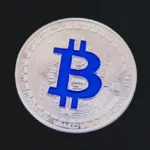A powerful consortium of major Japanese securities companies and trust banks, led by SBI Holdings, will fundamentally restructure stock trading.
Starting in 2026, retail and institutional investors in Japan will be able to trade tokenized versions of listed company stocks 24/7, with a minimum purchase amount of 1 Japanese Yen (JPY). This development represents one of the most important regulated applications of blockchain technology in traditional finance to date.
Japan builds world’s largest regulated on-chain stock market
This effort involves converting traditional publicly traded stocks into security tokens (STs) and enabling them to be traded on industry-wide infrastructure. The consortium is tokenizing existing company stocks, a multi-trillion dollar asset class.
Additionally, a clear regulatory framework for digital securities will make Japan stand out and allow institutional investors to participate in existing compliance structures. One analyst said of X:
“RWA Regulation 101: US: GENIUS Act → Stablecoins; UK: Building a full FSMA-based crypto regime; UAE: Licensing already tokenized real estate; Asia: Corridor Pilot and AML First Rule. What else?”
RWA Rule 101:
> United States: GENIUS Act → Stablecoins
> UK: Builds a complete FSMA-based crypto regime
> UAE: Already licensed for tokenized real estate
> Asia: Corridor pilots and AML priority ruleswhat else?
— Cal (@alt_street_bets) October 30, 2025
New features that redefine fluidity and accessibility
The proposed system challenges established market norms. These typically require shares to be purchased in increments of 100 shares or other minimum lot sizes, often limiting access for small retail investors. The digital securities system introduces unprecedented fractional ownership and liquidity levels by setting a minimum investment threshold of just 1 yen and enabling 24-hour continuous trading.
This initiative is therefore a strategic effort by Japan’s financial sector to provide services in line with the expectations of the digital generation and facilitate a broader transition from savings to investment.
For example, the perceived lack of regulated 24/7 on-chain stock trading venues around the world further highlights the importance of Japan’s efforts.
“There is no other place in the world where you can trade stocks on-chain 24/7. This will be the only way hundreds of millions of households will get exposure. Massive valuation of global markets will come in,” @ThinkingUSD commented.
For those of you who are slow to realize, this is truly a zero-to-one moment for global finance.
Nowhere else in the world can you trade stocks on-chain, on CLOB, 24/7, without permission. This is the only affiliated stock market in the world that is open throughout the weekend.
So… https://t.co/R0yvO0LKIO
— Flood (@ThinkingUSD) October 25, 2025
A blueprint for global RWA deployment
Industry experts expect global regulators and exchanges to scrutinize Japan’s model. Unlike individual tokenization trials taking place elsewhere, this effort is industry-wide, backed by major banks, and integrated with regulated market infrastructure.
If successful, it could become a global strategy to bring traditional securities on-chain at scale, bridging traditional markets to digital rails and accelerating the adoption of real-world assets (RWA).
The post Japan’s largest financial institution to start 24/7 tokenized stock trading in 2026 first appeared on BeInCrypto.










